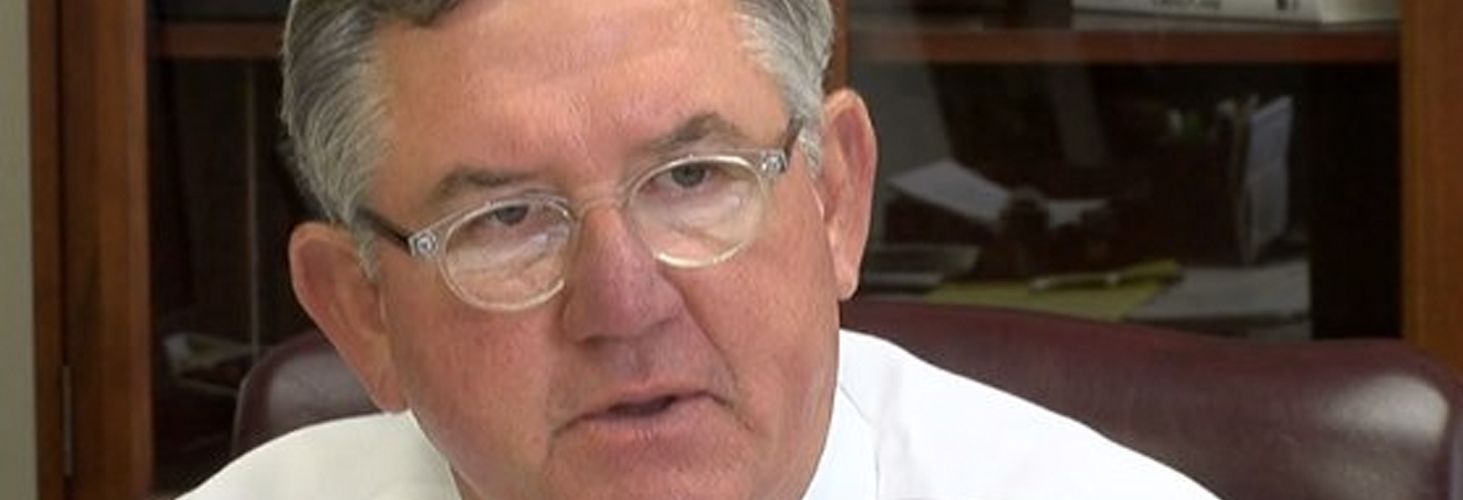By Chip Brownlee
Alabama Political Reporter
MONTGOMERY — A committee headed by Sen. Gerald Dial (R-Lineville) was unable to get to the bottom of who publicly distributed a letter last summer confirming a complaint against then-State Superintendent candidate Craig Pouncey.
In a presentation to the State Senate on Thursday, Dial said his committee interviewed at least 16 members of the State Board of Education and the Alabama Ethics Commission about the leak. The public leak prompted Pouncey to file a lawsuit for defamation.
The former candidate for the State superintendent’s position filed the lawsuit last month. It alleges several members of the State Board of Education’s General Counsel Office, Deputy State Superintendent Philip Cleveland and board member Mary Scott Hunter illegally conspired to prevent him from getting the position.
The defendants “were motivated by their own personal desires to prevent Dr. Pouncey from becoming the Superintendent of Education,” the lawsuit alleges.
Dial’s committee, which consisted of three senators and three representatives, met four times between October and January. It last met on Jan. 18.
Dial said Hunter, and 13 others interviewed, also signed a statement stating that they did not provide the letter to the press, Dial told APR. But the statements were not made under oath. The committee lacked subpoena power to thoroughly investigate the leak of the letter.
“We simply took them at their word because we did not have the authority to swear them in,” Dial said.
The ethics complaint was delivered anonymously to an official at the State Board of Education. As required by State law, the official then submitted the complaint to the Ethics Commission. However, the Ethics Commission cannot investigate anonymous complaints.
Instead, the department head, who was not the original filer, was assigned as the principle on the complaint, and it was no longer considered an anonymous complaint.
“That is a conflict, gentlemen,” Dial said. “That is not what the statute is intended to do. … Someone filing a complaint should either sign their name and go through with it, or it should go in the trash can.”
Dial said he thought the decision was a misinterpretation of Section 17 of the Ethics Commission, which states that a third party cannot become the principle on any anonymous complaint.
“If people can file anonymous complaints like this, you’ll get them every time there’s disagreement over a vote,” Dial told APR. He said he wanted to look into having the code section clarified.
Just days prior to Pouncey’s interview with the Board of Education, an Ethics Commission letter confirming a complaint was distributed publicly in July and August. APR reported on the letter going public. The letter was sent in July and alleged an ethics violation that was more than six years old, well past the statute of limitations for ethics complaints.
The letter addressed to Board General Counsel Juliana Deana stated Pouncey’s name as the subject of the complaint. Ethics Commission General Counsel Hugh Evans, who sent the letter, said in the letter that they were advising the Board of the complaint.
Hunter spread the allegations to lawmakers while attending a Business Council of Alabama gathering, Pouncey’s lawsuit alleged. Two sources who spoke with APR’s Josh Moon said they attended a BCA meeting in Point Clear, Alabama, and Hunter told them without provocation about the claims against Pouncey.
During the recent hearing, Tom Albritton, the executive director of the Ethics Commission, said Hunter called him about the complaint and that his office was led to believe that it was important to quickly begin an investigation.
The allegations in the ethics complaint later proved to be dubious. At the time, APR’s Bill Britt reported on the inconsistencies of allegations surrounding the complaint, including claims that Pouncey falsified the authorship of his doctoral dissertation.
Dial said the committee did accomplish something, though: The Ethics Commission will change their policy of notifying complainants that a complaint has been received. In the future, he said, the name of the accused will not appear on the letter.
“That’s the essense of what our committee did,” he said.
APR’s Josh Moon contributed to this report.
Email Chip Brownlee at cbrownlee@alreporter.com or follow him on Twitter.




















































You must be logged in to post a comment Login